4:30 – wake up
4:30-8:30 – milk your cows
8:30-9:00 – drink coffee, eat breakfast
9:00-12:00 – prepare feed for cows, feed them, tend your small farm
12:00-1:00 – eat lunch, drink more coffee
1:00-3:00 – care for other farm animals: goats, chickens, and the horse
3:00-5:00 – milk your cows again
5:00-6:00 – eat dinner
7:00 – go to sleep
4:30-8:30 – milk your cows
8:30-9:00 – drink coffee, eat breakfast
9:00-12:00 – prepare feed for cows, feed them, tend your small farm
12:00-1:00 – eat lunch, drink more coffee
1:00-3:00 – care for other farm animals: goats, chickens, and the horse
3:00-5:00 – milk your cows again
5:00-6:00 – eat dinner
7:00 – go to sleep
This is the schedule of Don Evelio Vargas, the dairy farmer we met two Fridays ago. He showed us his seven hectare farm, on which live seventeen cows, four calves, a few goats, a few chickens, and one very important horse. He follows this routine every day of the week, all year long, and has been for the last twenty eight years. When his two kids were young, he would carry them out with him to the barn in the mornings, and they would sleep next to him as he milked the cows; his son could milk as well as he could by the time he was four. He keeps a small garden, uses worms to convert cow dung into fertilizer, and speaks with a sense pride about his land and his work so obvious that you don't need to speak Spanish to understand.
His farm is absolutely beautiful. Green and hilly, live fences and clumps of original-growth forest divide the farm into 27 grazing paddocks and serve as windbreaks to protect the cows, his crops, and the land itself from the winds that could probably, in the absence of the trees, tip cows with no human intervention. And, like many small farmers in Monteverde (and, I hope, many small farmers in the world) his farm is “sustainable,” “organic,” and “hormone free;” except he has only been using those words for the last few years.
I'm no farmer: the time I have spent on farms in the last month (two or three cumulative days) has been just about as much as I ever have in my life. From my city-boy perspective, the concept of buzz-words like “organic” and “fair trade” make a lot of sense, especially when products with those labels are compared to the rest of what you can buy at Safeway or the grocery section of Walmart. So much of the produce we eat in the US (and most cities worldwide, I suppose) is grown unsustainably that the need to distinguish food that is healthy, for the soil it is grown in as well as the people who eat it, from the food that isn't is pretty clear.
What do these words mean to people like Don Evelio? He isn't “farming organically” or producing “hormone-free milk,” he just runs his farm like his dad did. His cows are fed a combination of grass, sugar cane, and molasses because it produces the best milk, not because corn-fed cows are bad. The cows rotate through the 27 paddocks, spending one day on each at a time, allowing the grasses to regrow not because free-range cows are better but because it keeps the cows and the land healthy, and it has for the last two and a half decades.
Like so many small farmers, his farm is organic because that's how he was taught; his farm is sustainable because he doesn't have seven more hectares to move on to if he screws up the seven he's got; and his farm is spray-, pesticide-, and hormone-free because, for the most part, it's his wife and his kids who eat the food that comes out of his garden.
(In Don Evelio's case, there is one exception: as a shareholder of and producer for the Monteverde Cheese Factory, a corporation owned almost entirely by 230 local dairy farmers, he knows that if he delivers milk to the factory that has even a trace of antibiotics or artificial growth hormones, he will be fined and put on probation for a month.)
These “green” buzzwords are our way of attempting to define a difference between the enduring reality of horrible agricultural practices that have existed in the United States for the better part of a century and an idealized vision of a more connected, more responsible, and healthier agricultural process. For people like Don Evelio, who already practice that vision, these words used to carry little meaning.
But that's changing.
What meaning these words have stem mostly from American influence. Don Evelio may label his produce “todo orgánico” to lure the foreign tourists who buy food from at the Santa Elena farmer's market to his stand, just like the Santa Elena Coffee Cooperative (which I blogged about last week), which has paid the hefty fees to put the official “organic” and “fair trade” logos on their exported products so they fetch a higher price.
More, these imported labels serve as distinctions from imported products and practices. Don Evelio might call his farm a “finca sostenible” to distinguish his farm from the massive plantations in the Central Valley run by American-owned agricultural behemoths. Additionally, he makes sure to keep his milk hormone- and antibiotic-free (additives imported from the US) so that he isn't put on probation by the Cheese Factory, a company founded by the American Quakers who settled in Monteverde in the 1950's.
These words are still just words. Sometimes they are abused, like that massive monoculture of a Pineapple plantation we visited our first week here that somehow pulled off official United States Department of Agriculture “Organic” certification. In most cases, the words themselves don't have a big effect on the producers themselves: people like Don Evelio will continue to farm sustainably with or without the label, and corporations like the Standard Fruit Company will continue to be short-sighted and profit-driven even if the “organic” label comes with a few pesky obligations.
Yeah, that's me milking a cow. I guess my point is that it's not the word that is important; it never has been. It's the culture of respect and comprehension that everything is very literally connected to everything else that is so essential: what we feed ourselves affects how (un)healthy we become, how we treat the animals we eat affects the quality of what we eventually consume, and how I work my land very directly controls how my children will be able use it when I'm gone.
Don Evelio does not live an easy life. I don't envy him. But we can all learn a lesson from people who live like he does. My professor's partner is a birder, naturalist, and wood carver. A few weeks ago, during a guest lecture about bird identification, he said of their one-year-old son: he will understand how many things live in, on, and around trees, and because of that he will never cut down even an acre of forest.
May it be so, for all of us.

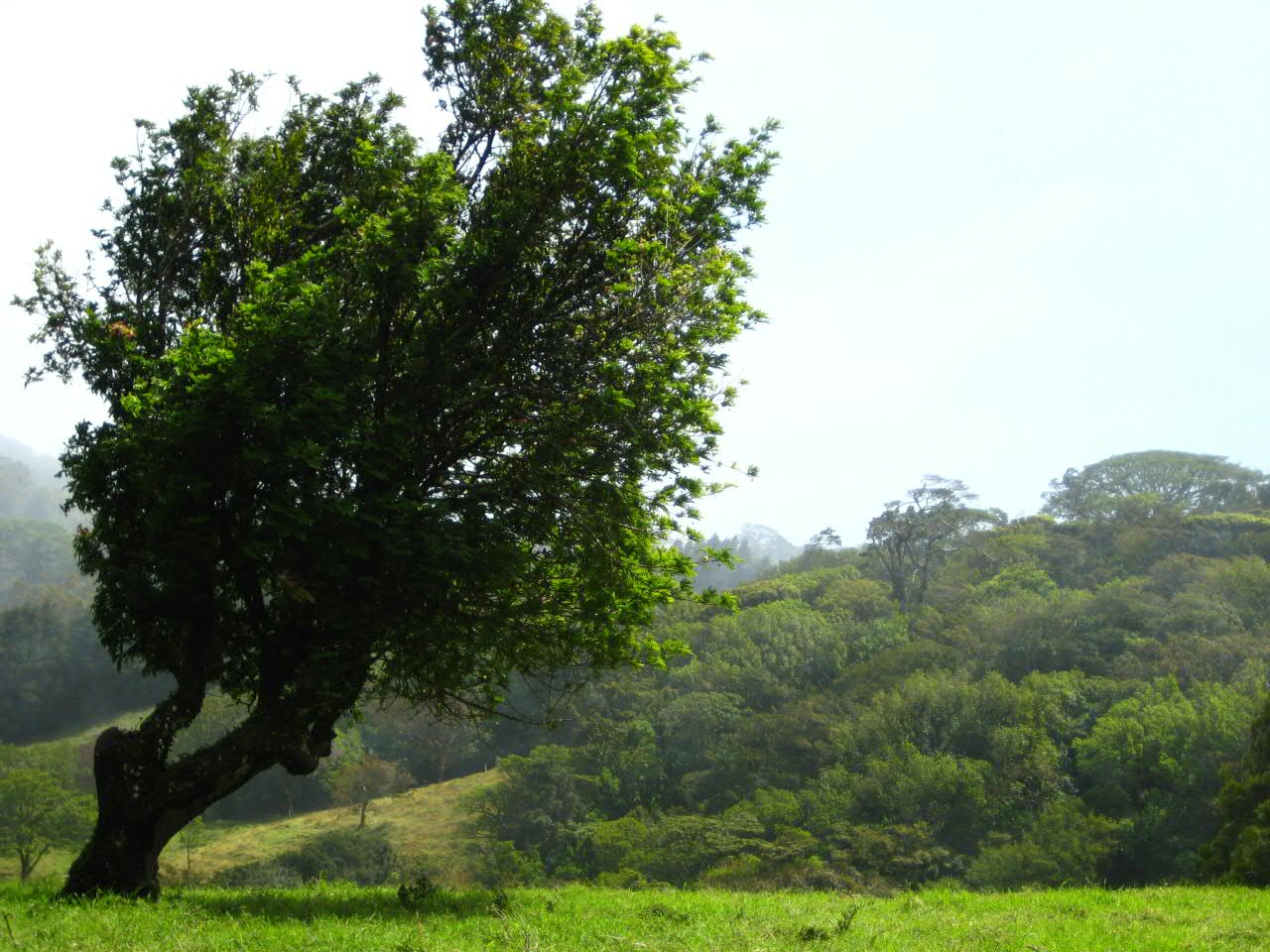
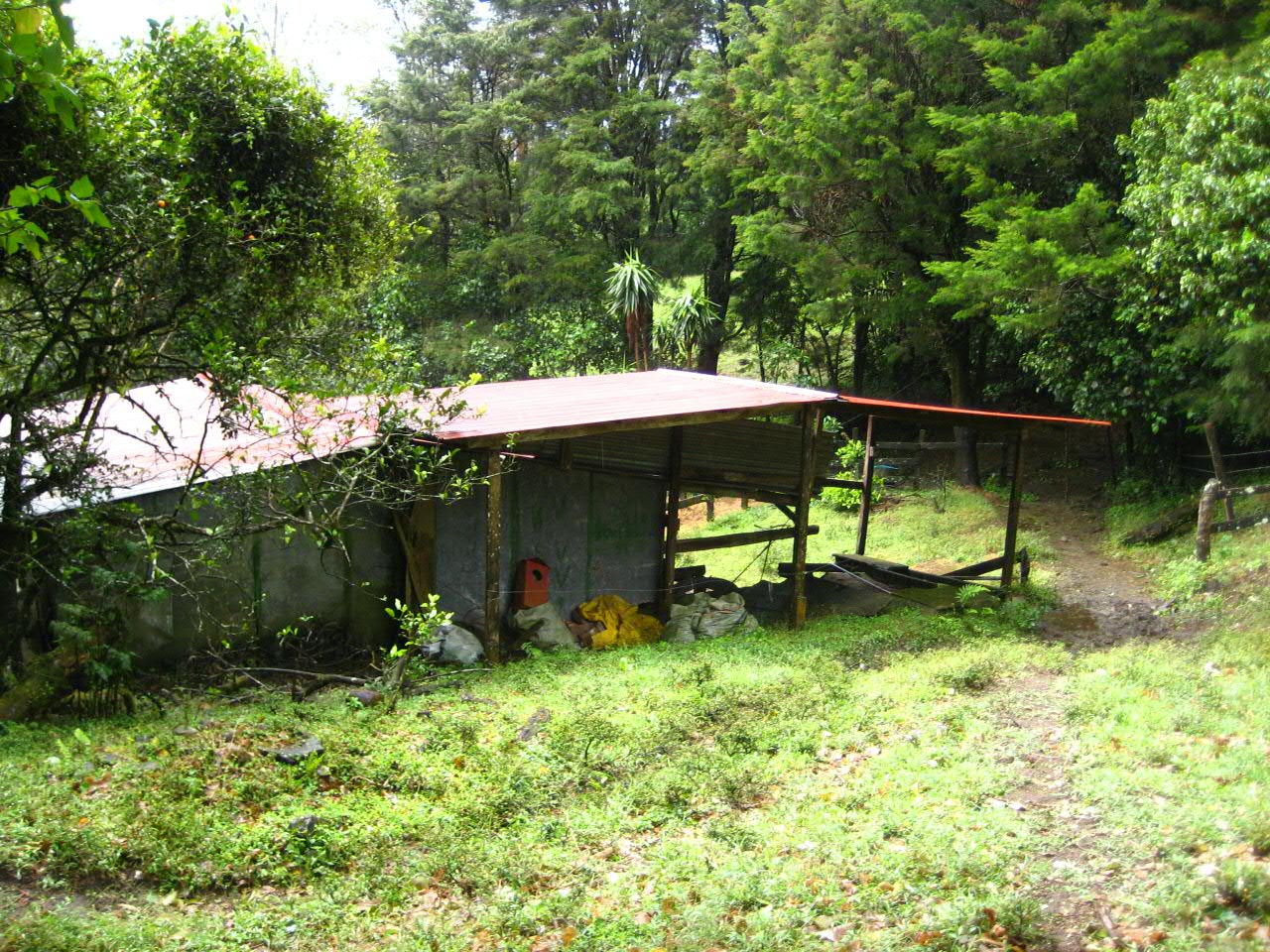
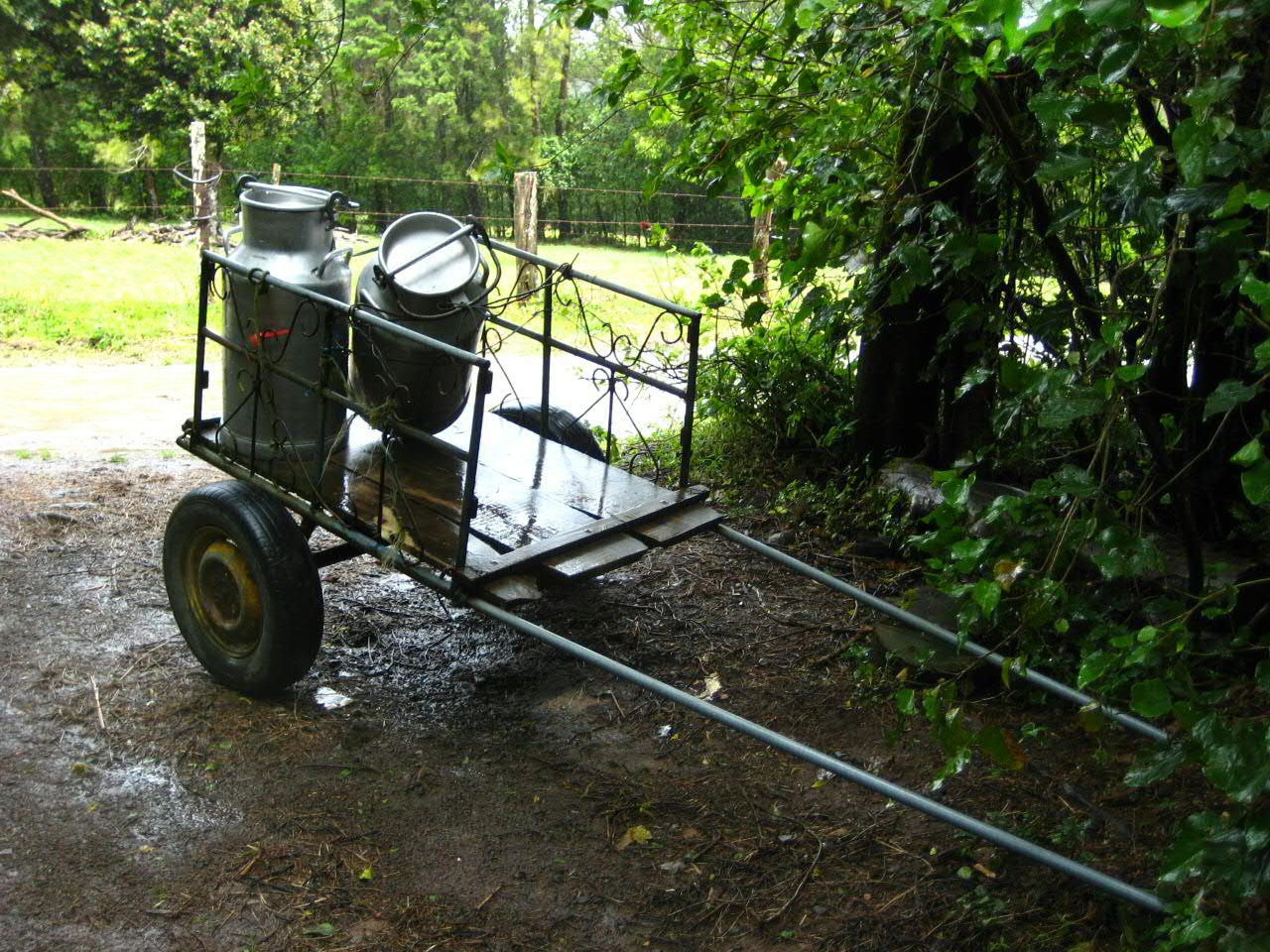
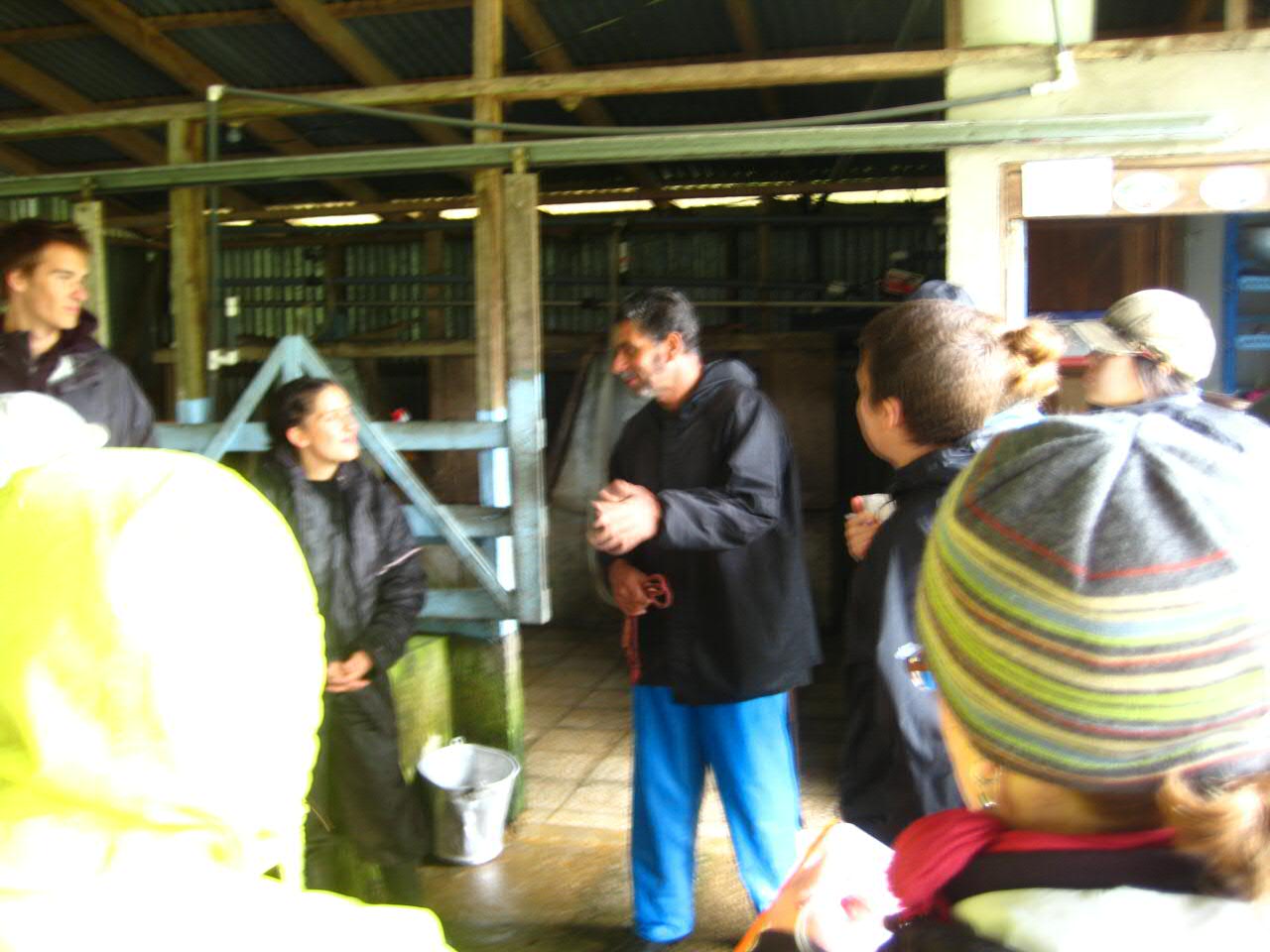
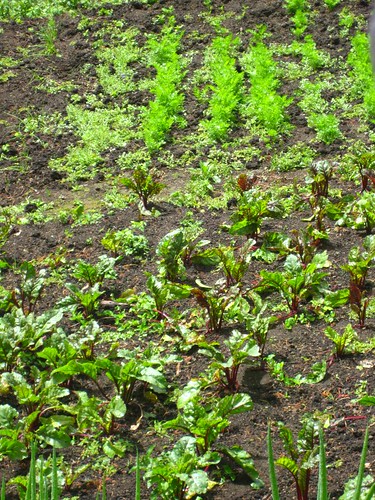
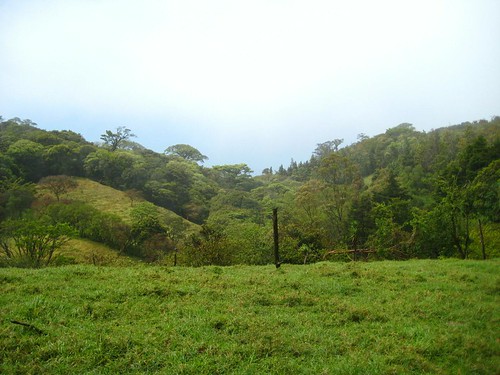
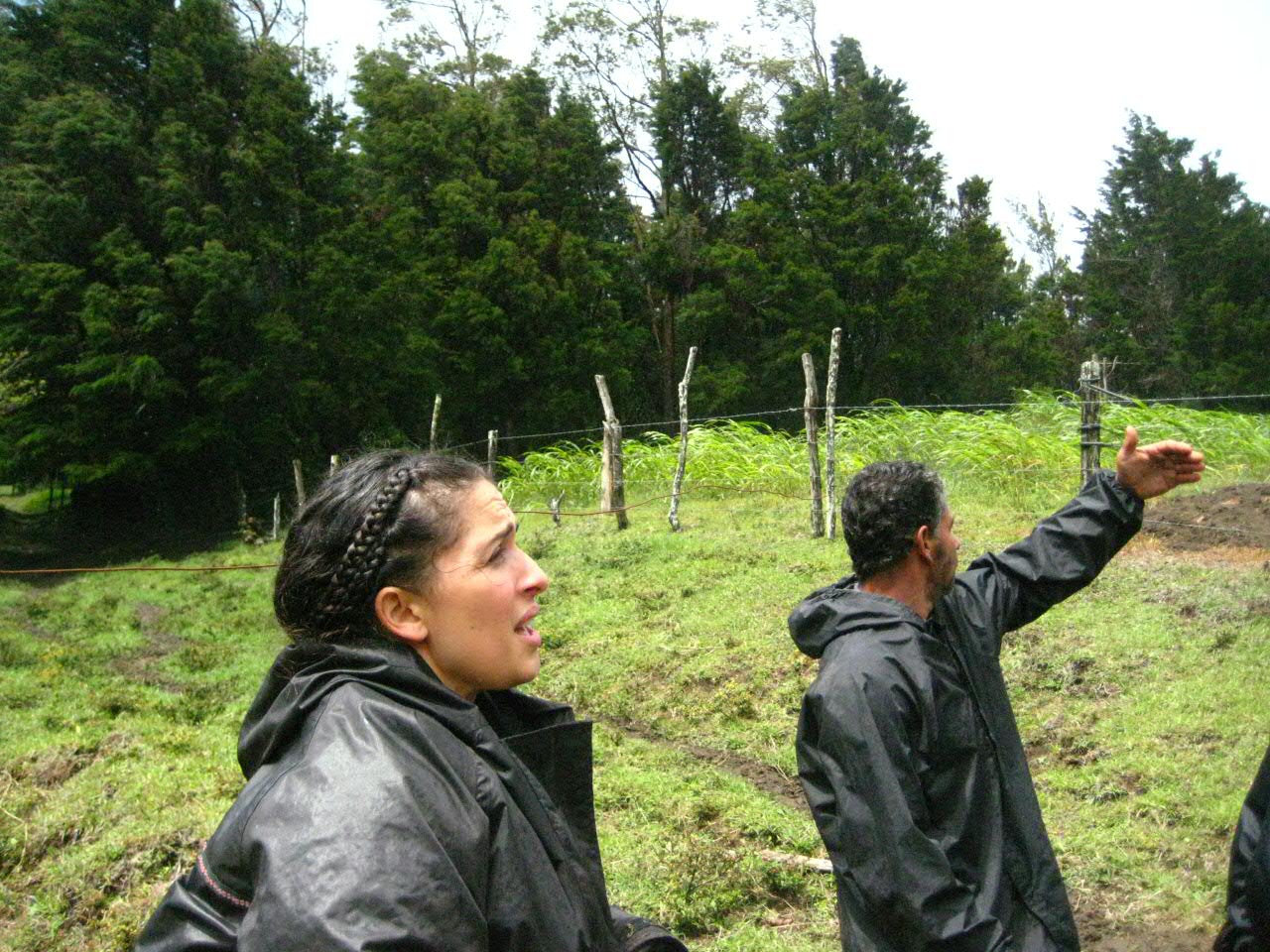
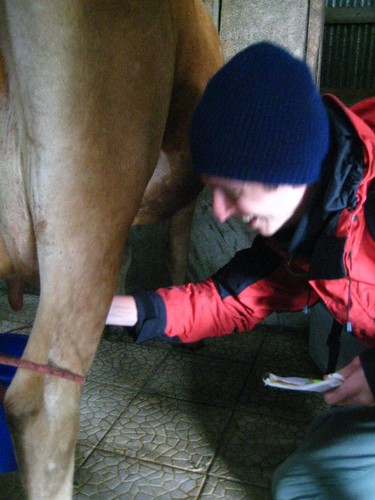




I love you
ReplyDelete